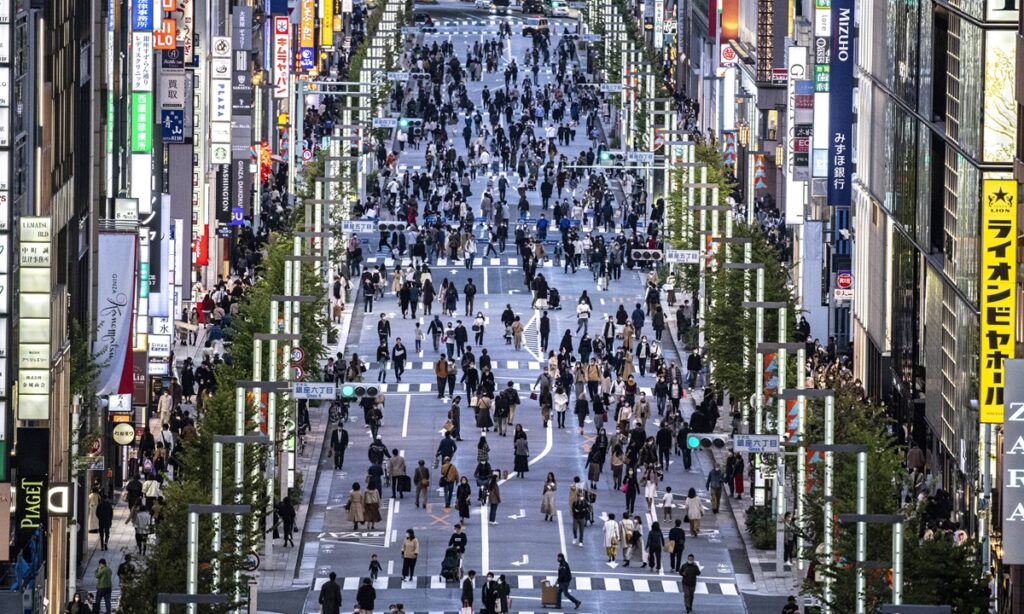People walk on a street in Tokyo’s Ginza area at dusk. Photo: AFP
Tighter policies mulled over new Omicron variant
Japan announced plans Monday to bar all new foreign travellers over the Omicron variant of COVID-19, joining a growing list of countries trying to erect virtual fortresses against the heavily mutated new strain.
G7 health ministers are expected to meet later on Monday to discuss the new strain – first detected in South Africa – and the fresh challenge it poses to global efforts to battle the pandemic.
The Japanese government has become the latest country to reinstate strict border controls that many had hoped would be a thing of the past, barring all new foreign arrivals just weeks after announcing it would finally allow some visa holders to enter the country.
Japanese Prime Minister Fumio Kishida said the country was “in a stronger position against the Omicron variant than other countries,” citing voluntary mask-wearing and self-restraints about risk behaviors.
The Philippines also said it would temporarily suspend plans to allow fully vaccinated tourists entry, in a bid to prevent the variant taking off in a country where most of the population remains unvaccinated.
The variant is also throwing a tentative opening-up into doubt in Australia, where the government is now reconsidering plans to relax border restrictions further in just two days.
But with three Omicron cases confirmed in people flying into Australia from southern Africa, Prime Minister Scott Morrison appeared reluctant to reimpose the kinds of strict lockdowns seen earlier in 2020.
“We don’t just need to learn to live alongside COVID[-19], we need to learn to live alongside the variants as well,” he said in a statement.
Much of the uncertainty surrounds just how infectious Omicron is and how resistant it is to existing vaccines.
The prestigious Bambino Gesu hospital in Rome on Sunday released the first “image” of the new strain and confirmed there were many more mutations than seen in the Delta variant, but said that does not mean it is more dangerous.
But European Commission chief Ursula von der Leyen said Sunday governments faced a “race against time” to understand the strain and that vaccine manufacturers needed two to three weeks “to get a full picture of the quality of the mutations.”
AFP / Global Times



